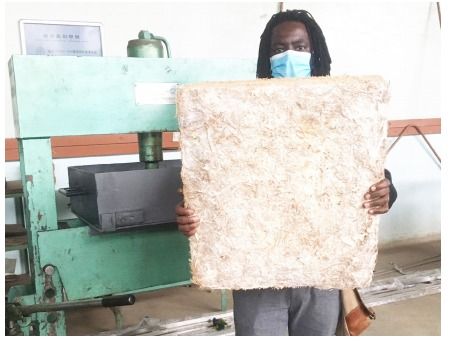
Added: Feb 16, 2021
Last edited: Aug 17, 2022
MycoTile produces locally manufactured, alternative building materials using agricultural waste and fungal mycelium.
In Kenya, most construction materials are imported, and for this reason are relatively expensive and often simply not the best quality. The country has an annual housing demand of 250,000 units with an estimated supply of just 50,000, leaving an 80% deficit. At the same time, there are natural resources whose potential application in construction is largely untapped. One is agricultural waste produced by small-scale farmers. Another is mycelium, a natural fungal material with industrial-level strength.
MycoTile offers a high performance and cheaper alternative to traditional building materials. MycoTile uses a carbon negative process to bond agricultural waste (such as maize cobs, coffee husks, coconut coir and rice husks) with mushroom mycelium. The product is denatured through heat treatment in order to inhibit mycelium growth.
Their first product was suspended ceiling panels, which have superior acoustic performance and fire-retardant properties compared to the available alternatives. The fire-retardance is naturally enhanced by the chitin that is present in mycelium. They have big plans and are prototyping a larger portfolio of products, such as wall insulation, construction blocks, MDF-style panels and even furniture. Although the major challenge has been changing public perception on the use of mycelium in construction, MycoTile currently has more demand than they can supply. A recent important step in their growth was the conclusion of a comanufacturing contract with a government entity. They are establishing partnerships with small scale farmers, who they pay for agricultural waste, to assure security of supply.

